Cover image: Stolen Grain by LHQ
Read our other entries: Introduction; The Yellow Scarves Rebellion; Dong Zhuo Takes Control; The Dying Embers of Rebellion; The Rise of Cao Cao
The Emperor’s New Clothes (199CE)
With Lü Bu defeated, Cao Cao and Liu Bei returned to the capital. Liu Bei and his royal lineage were made known to the emperor, and he was recognized as a royal uncle. By this time, Cao Cao’s ambitions were known to Emperor Xian, who feared that Cao Cao was simply biding time until he could usurp the young ruler.
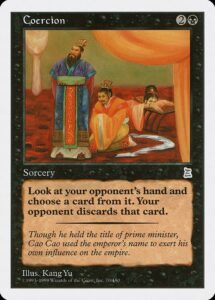
Biting his finger, the emperor used his own blood to write an edict condemning Cao Cao, and asked Empress Fu to sew the decree into a garment that could be taken to Liu Bei. It read, in part:
“Of late, the treasonous Cao Cao, abusing his authority, insulting and degrading his sovereign, has connived with his cohorts to the detriment of our dynasty’s rule. […] General, you are a prominent public servant and our nearest relative. Think of the obstacles and the hardships the Supreme Ancestor faced when he founded this dynasty: forge a union of stouthearted men, stalwarts of unimpaired integrity and unimpeachable loyalty; exterminate this perfidious faction and restore the security of our holy shrines for our ancestors’ sake. […] Do not fail our hopes.” (Ch. 20, p.160)
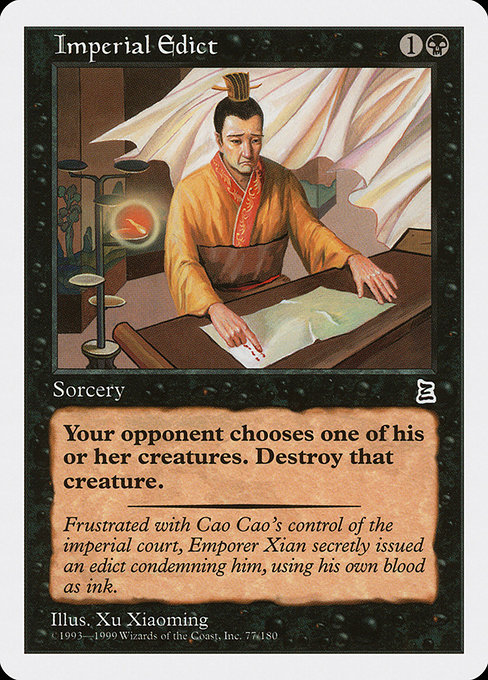
The edict reached Liu Bei, who pondered how to do this.
In the days that followed, Liu Bei tried to avoid Cao Cao, but found himself unable to refuse an invitation to tea. In a phenomenal scene, Cao Cao asks Liu Bei who the heroes of the realm might be. Liu Bei lists several warlords: Yuan Shao, Sun Ce, and many others, but Cao Cao dismisses them all. Instead, Cao Cao says that, “In my opinion, only you and I are heroes.”
Yuan Shao turns South
Meanwhile, in the North (Ji, Qing, You, and Bing provinces), Yuan Shao was amassing power. Gongsun Zan, who had once been a mentor of Liu Bei, had been defeated, and Liu Bei saw this opportunity to break from Cao Cao. Making the case that it would be a strategic necessity to cut off Yuan Shu, who was still making trouble in the South, from his half-brother Yuan Shao, who controlled the North; Liu Bei convinced Cao Cao to send him to Xuzhou. Liu Bei had anticipated Yuan Shu’s plans correctly, and annihilated Yuan Shu’s forces. Forced to retreat, Yuan Shu died in sickness and in grief.
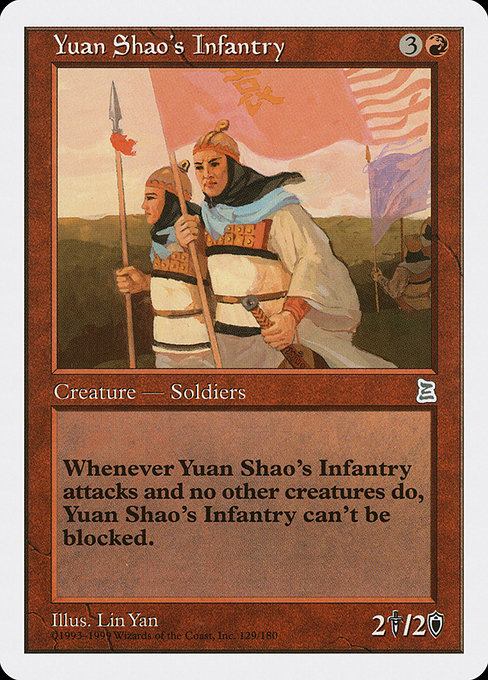
Seeing his opportunity to honor the Imperial Edict, Liu Bei then sent word to Yuan Shao regarding Cao Cao’s abuse of power. Despite Liu Bei’s role in his half-brother’s downfall, Yuan Shao agreed with Liu Bei’s assessment of Cao Cao, and resolved to march against him. However, Yuan Shao’s indecisive nature began to erode morale and unity among his armies.
Brothers Parted and Reunited
Not long after Yuan Shao began his campaign southward, Cao Cao learned of the Imperial Edict, and sent his forces to attack Liu Bei. Liu Bei, Zhang Fei, and Lord Guan Yu attempted to launch a surprise attack, but Cao Cao foresaw this, routing Zhang Fei and driving Liu Bei to retreat north to the protection of Yuan Shao. Using Xiahou Dun to draw Guan Yu away from Xiapi, Cao Cao took the city.
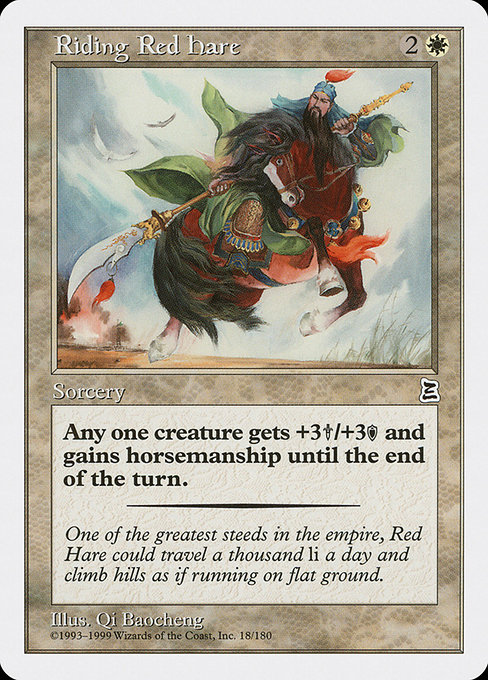
Just then, Zhang Liao rode up, seemingly from out of nowhere, and implored Guan Yu to surrender and live on to honor the Peach Garden Oath, as Liu Bei and Zhang Fei yet lived. Cao Cao agreed to spare Guan Yu’s life, showering him with honors and gifts, including Lü Bu’s former horse, Red Hare, in an attempt to win his loyalty. Guan Yu, however, was steadfast in his devotion to his oath-brothers, and Cao Cao couldn’t help but admire him for it.
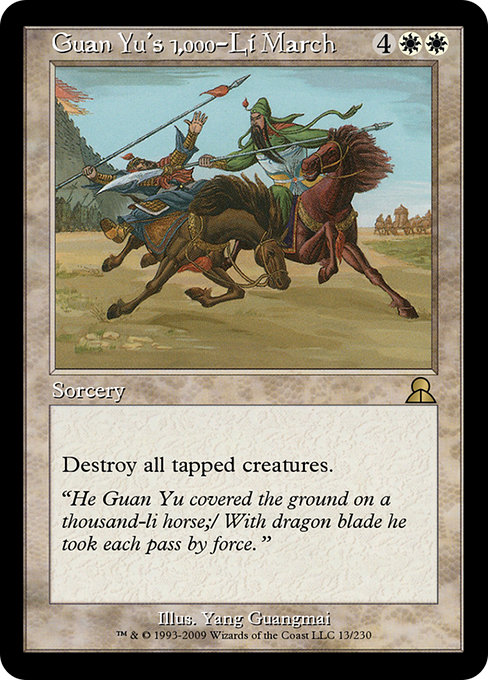
Soon, Guan Yu received word that Liu Bei was nearby. He escaped Cao Cao’s camp and rode over 1,000 li (over 400 km) to be reunited with his brother, killing six of Cao Cao’s generals who blocked his way. Soon after Guan Yu and Liu Bei were reunited, they also found Zhang Fei and Zhao Zilong, and decided to leave Yuan Shao and rode south to assist the people of Runan. Deprived now of Liu Bei’s military prowess, Yuan Shao wrote to Sun Ce, hoping to recruit him to his cause.
The Setting of Sun Ce; The Rising of Sun Quan
In the Southland, Sun Ce continued to amass power, but made enemies along the way. One day on a hunt, a band of assassins, seeking vengeance for the death of their master, ambushed Sun Ce, shooting him with a poisoned arrow and nearly killing him.
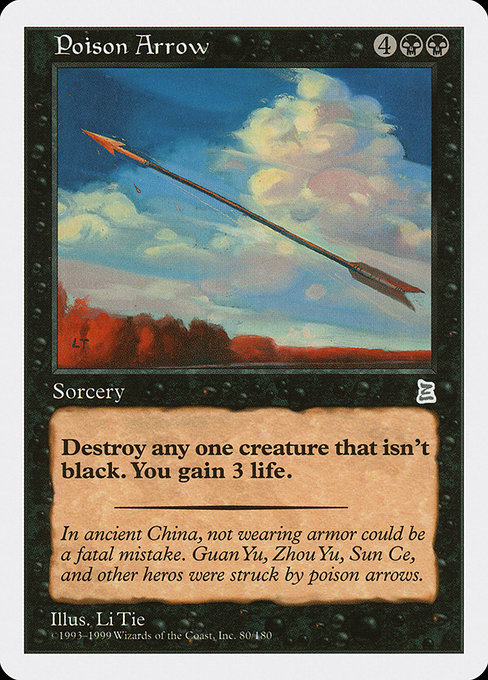
Hua Tuo, Honored Physician had gone north, and Sun Ce was instead treated by one of his disciples. While he was being treated, Yuan Shao’s letter arrived. During a banquet honoring Yuan Shao’s messenger, a Taoist mystic entered the city, attracting attention. Despite his skill in bringing much needed rain, Sun Ce was hateful toward him. Calling him a sorcerer, Sun Ce put him to death personally. After this, the mystic’s spirit continued to appear to Sun Ce, haunting him until he succumbed to the wounds he suffered from the assassins.
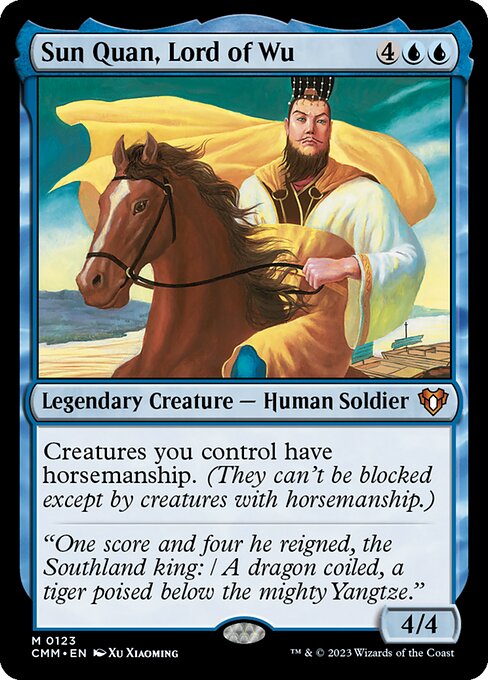
As he lay dying, Sun Ce bestowed on his younger brother Sun Quan the authority of his office. Jade-eyed, with a strong jaw and a black beard that shimmered purple, Sun Quan is described in auspicious terms. Sun Quan gathered to himself the wisest and strongest of the Southlands to his court, including his brother’s friend Zhou Yu, and the scholars and advisors, Lu Su and Zhuge Jin.

It was Zhuge Jin who advised against siding with Yuan Shao, arguing instead that he should bide his time in Cao Cao’s good graces until the right moment. Yuan Shao, upon hearing this, was furious, and mustered an army of 700,000 men to march on the Capital of Xuchang.
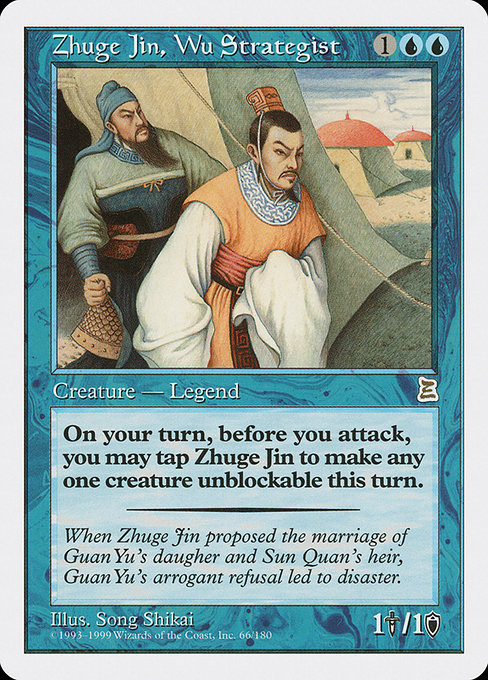
The Battle of Guandu (200 CE)
Yuan Shao’s armies outnumbered Cao Cao’s forces tenfold, but like their commander, they lacked discipline. In addition, Cao Cao had a strategic topographical advantage. It was Yuan Shao’s treatment of his advisors, however, that sealed his fate.
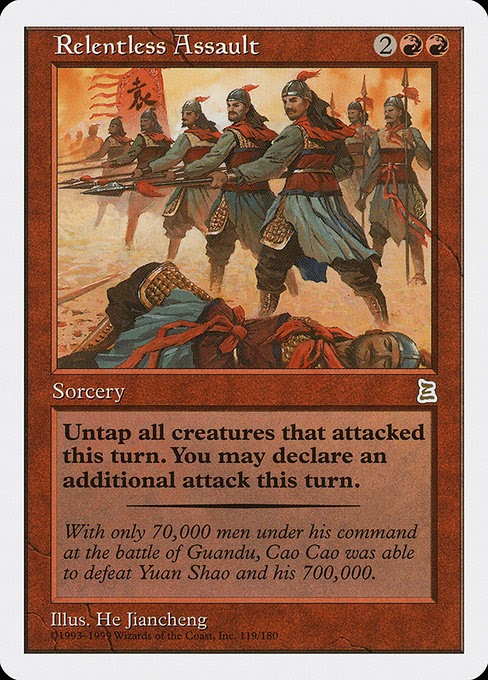
The siege at Guandu had gone on for months, and food ran low. Cao Cao needed a victory soon, but could not attack the much larger force, even if they lacked discipline. Suspecting that Cao Cao’s presence in Guandu meant the capital was unguarded, Yuan’s advisor Xu You urged him to launch a surprise attack on the capital with a much smaller force that could circumvent Guandu without being noticed. Yuan Shao rejected this advice harshly, angering the advisor, who defected, revealing to Cao Cao how a 70,000 man army might destroy a 700,000 army within three days: attack their food supply.
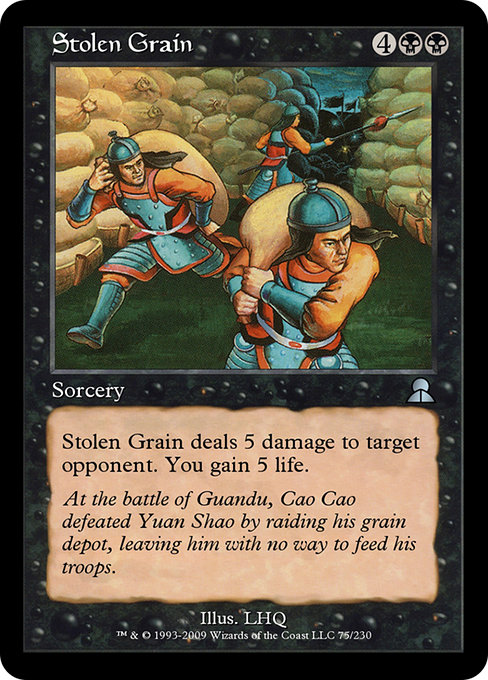
At Yuan Shao’s camp, another of his advisors tried to warn him that the grain supplies were vulnerable, but Yuan Shao dismissed him. Cao Cao’s plan was, subsequently, a strategic death stroke. Out of food and reeling from the loss of his base, Yuan Shao divided his troops again and again, and again and again, Cao Cao’s forces crushed them. His troops slain or scattered, Yuan Shao was forced to flee into the north with only 800 horsemen.
Cao Cao Conquers the North (202-207 CE)
Demoralized and in poor health, Yuan Shao died two years later, leaving his three sons in a state of conflict over who his successor would be. Pressed by Cao Cao, two of them fled north to the desert, where the nomadic Wuhuan peoples dwelled.
What Was Not in the Cards
While I could not summarize every time this has happened, nor even most of the times, one of the astounding things that Luo Guanzhong depicts is just how often the “heroes” of Romance of the Three Kingdoms engage in single combat before a battle. Luo seems to revel in telling us how artful someone’s swordsmanship is, or how many bouts combatants go through, with great warriors often clashing dozens of times, impressing everyone watching. While it got mixed reviews, the Dynasty Warriors movie, released in China on April 30, captures some of this feeling in the trailer:
To add that feeling to our “remastery,” let’s pull some cards to add as possible “reprints” for our daydream of P3K Remastered: Band Together, Epic Confrontation, Single Combat, Prepare // Fight, Heroic Intervention, Act of Heroism, and Hero’s Demise.
While Single Combat might be a risky include—we already have another white sweeper in Ravages of War—I like the theme enough to include it. In a commander-themed remaster, Slash the Ranks is another great option. Likewise, while Hero’s Demise is an incredibly useful include in a set that has so many legendary creatures, I could see an argument made for the inclusion of Hero’s Downfall instead, especially if we considered adding planeswalkers.
Finally, our characters encounter a number of mystics and soothsayers, which are underrepresented in the card pool, so I propose adding some minor magicians, such as Omenspeaker, Prodigal Sorcerer, and Revolutionist—with thematically appropriate alternate art, of course.
For a new design this week, I’ve gone back to recover a named sword from Cao Cao’s failed attempt to assassinate Dong Zhuo: The Seven Star Blade.
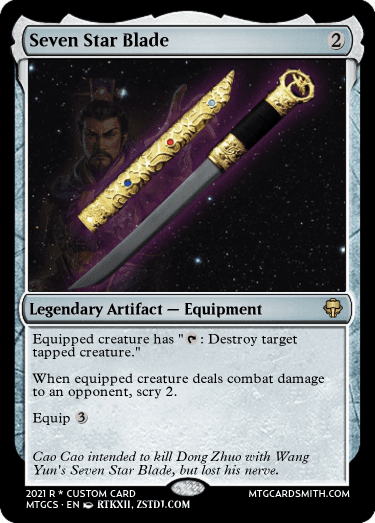
The Seven Star Blade was given to Cao Cao by Diaochan’s father, Wang Yun, in the hopes Cao Cao would use it to kill Dong Zhuo. When Cao Cao was about to do this, however; Dong Zhuo, despite his back being turned, saw Cao Cao with the blade in a mirror, and addressed him. Cao Cao, losing his nerve, offered Dong Zhuo the blade in his hands as a gift as an attempt to conceal his true motives.
To capture the intent and failure of Cao Cao, I’ve made this equipment grant Royal Assassin’s ability—tapped creatures (like sleeping despots) beware! In addition, because the “seven stars” in question are often thought to be the Big Dipper, I’ve given the dagger the ability to “consult the stars” and scry 2.
Read On!
This week, we glossed thirteen chapters that further develop the story in ways that are only hinted at here. The “two heroes” are contrasted: Liu Bei’s meeting with the emperor and acknowledgement of a descendant of the progenitor of the Han Dynasty is meant to drive home to the reader that his cause is legitimate and that he should be the hero to save the empire. On the other side, Cao Cao is portrayed as a villain in ever-more-obvious ways. Likewise, a general to the north and a general to the south are contrasted: Yuan Shao falls because of his indecision, his undisciplined army, and refusing to give heed to his wise advisors. Meanwhile, Sun Quan courts the best advisors and develops the talents of those around him. These contrasts serve to put forward wise teaching regarding the conduct of rulers.
The Battle of Guandu was decisive historically and is still studied, in part because it was cited by communist leader Mao Zedong in his writings on strategic retreat. If you’re interested, you can watch a clip from episode 27 of the Chinese television series Three Kingdoms over on Youtube. Next week, we’ll cover approximately twenty chapters, introducing Kongming, Sleeping Dragon and the famed battle of Red Cliffs! Will Liu Bei and Sun Quan be able to stop the ambition of Cao Cao and fulfill the emperor’s edict? Read on!
Recommended Media:
Luo Guanzhong, Three Kingdoms, Ch. 20-33. (pp. 157-263)
Eva Wong, Taoism: An Essential Guide. United States: Shambhala, 2011. (especially chapters 1-8)
Rafe de Crespigny, Imperial Warlord: A Biography of Cao Cao 155-220 AD. Leiden, The Netherlands: Brill, 18 Aug. 2010.
The Battle of Guandu, ep. 27 from Three Kingdoms (2010), on Youtube.
Jacob Torbeck is a researcher and instructor of theology and ethics. He hails from Chicago, IL, and loves playing Commander and pre-modern cubes.

